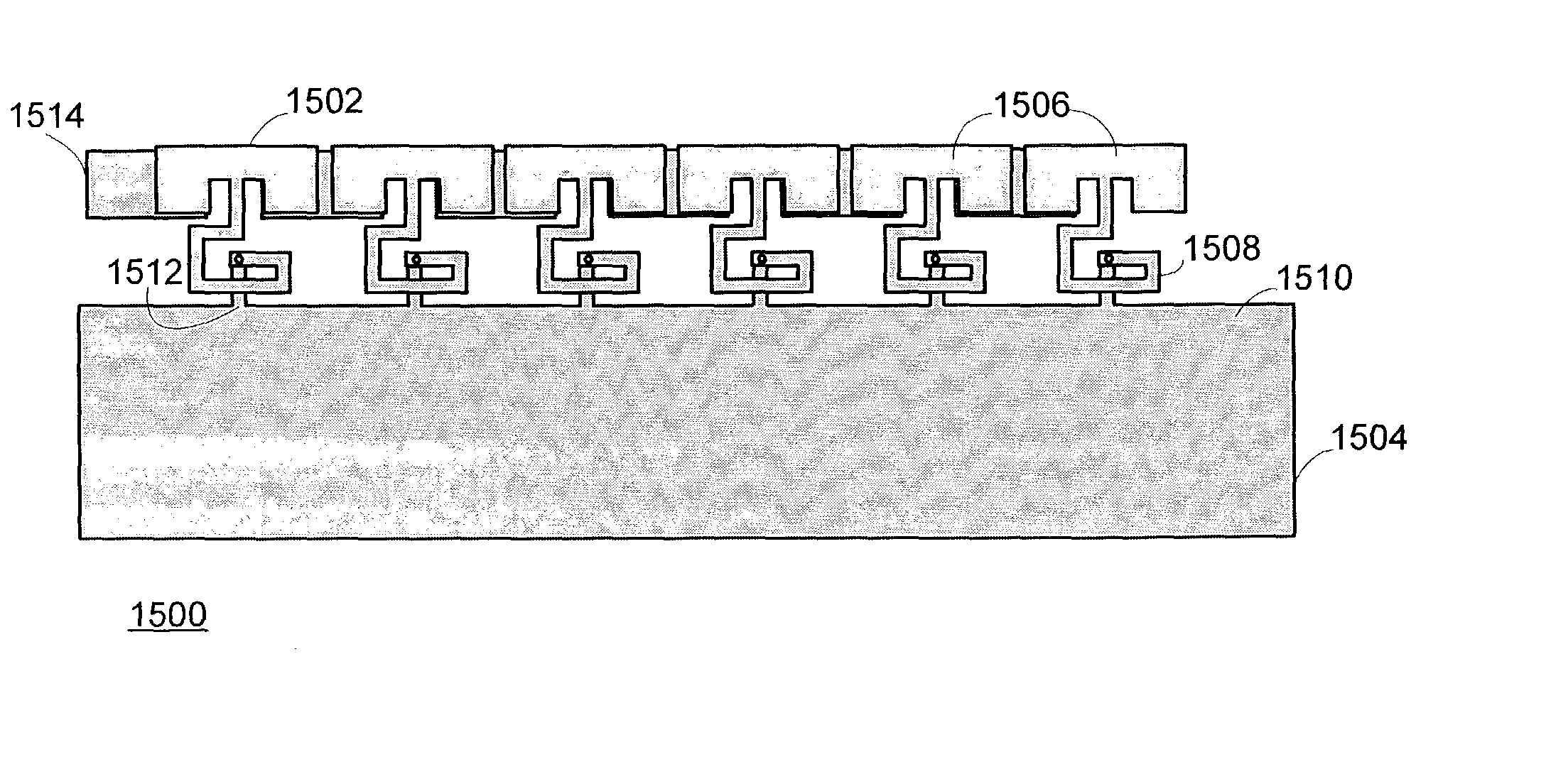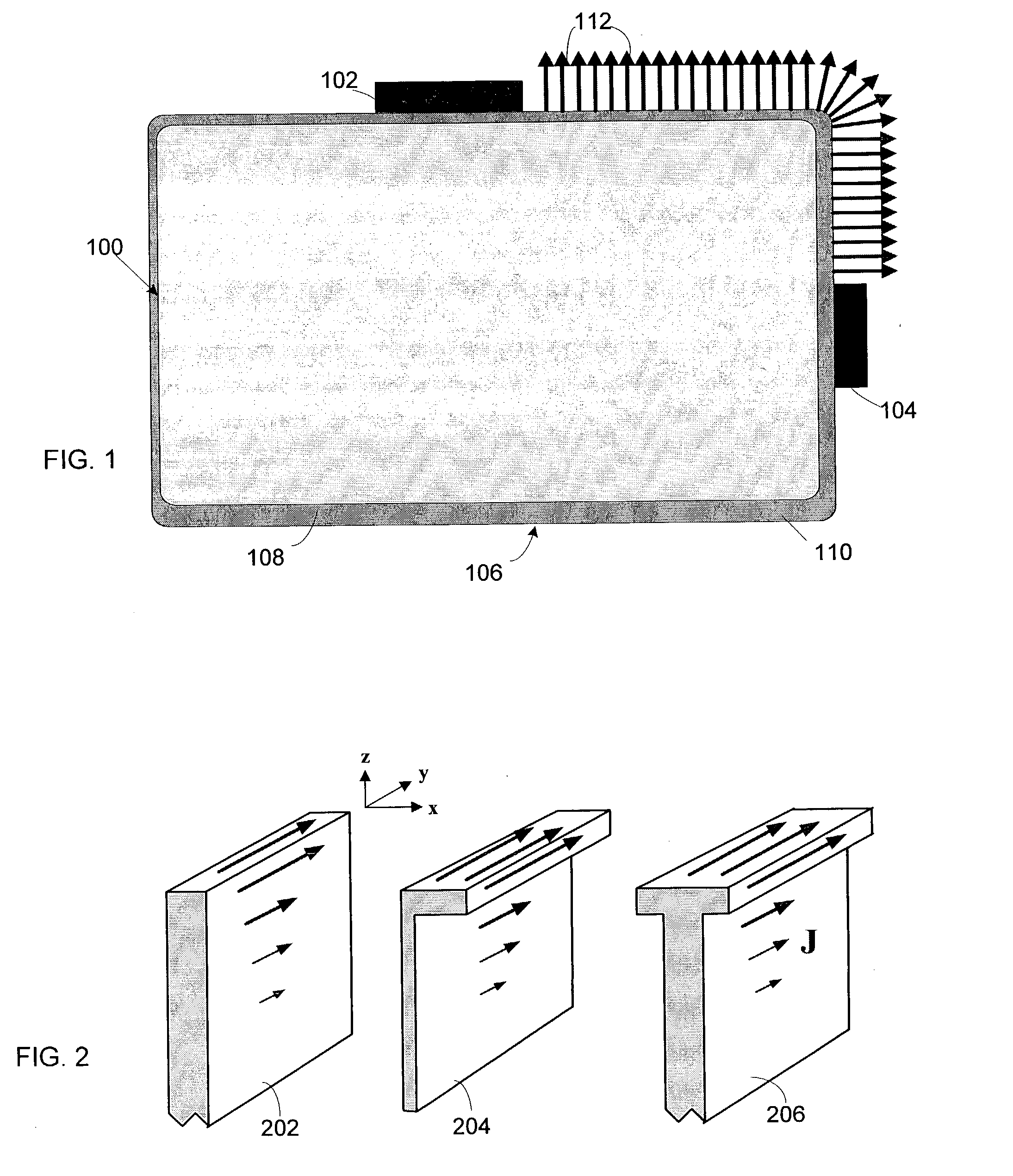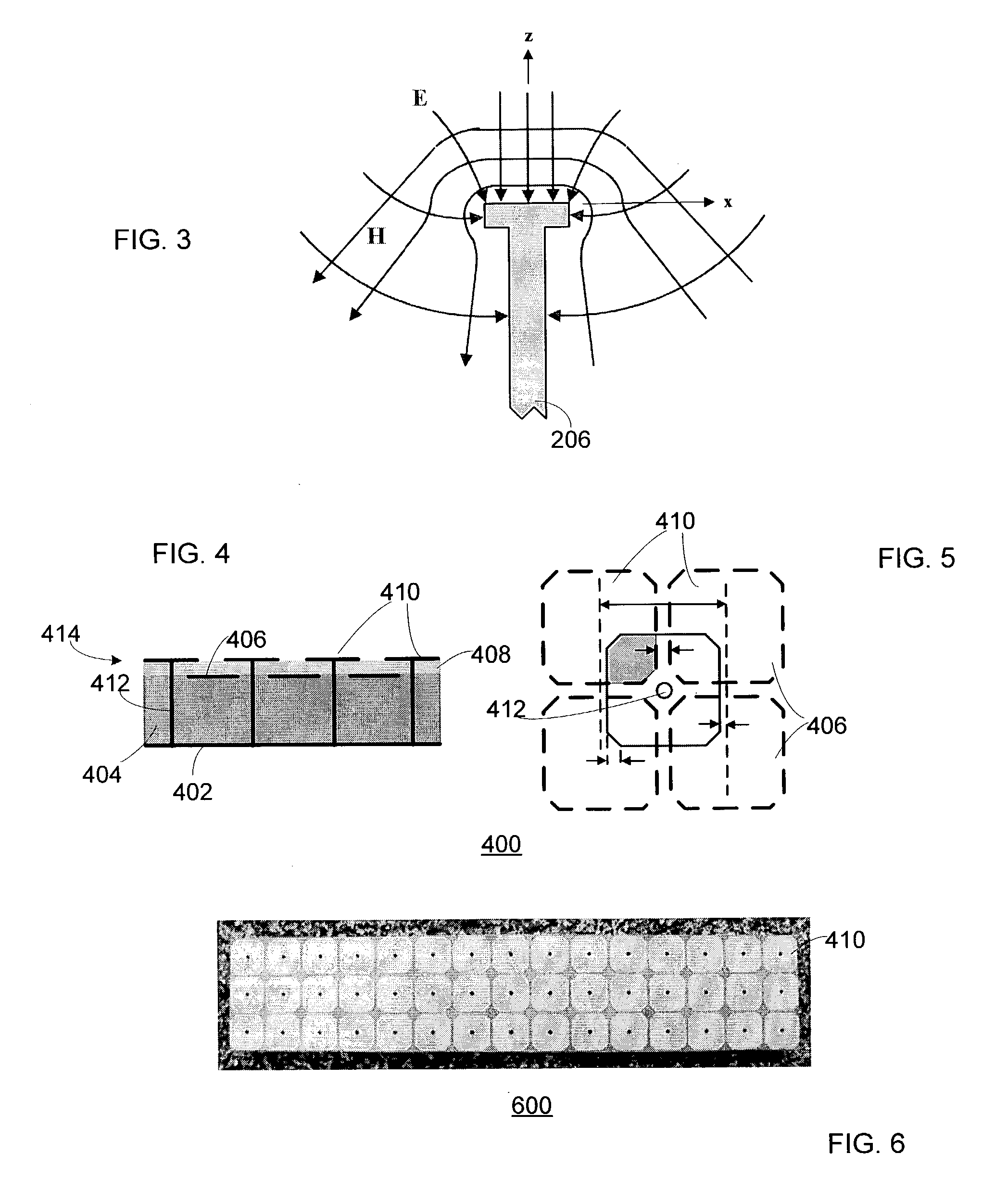Narrow reactive edge treatments and method for fabrication
- Summary
- Abstract
- Description
- Claims
- Application Information
AI Technical Summary
Benefits of technology
Problems solved by technology
Method used
Image
Examples
Embodiment Construction
[0034] The present invention provides a reactive circuit intended to be integrated into, or attached to, the edge of a conductive ground plane or electrically thin conductive surface. Its purpose is to act as a choke for electric currents that can flow tangential to the edge of the conductive surface. The most common reason for such currents to exist is because they travel along with a radiated electromagnetic wave that is launched from an antenna located on or near the edge of the ground plane. By choking edge currents, one can increase the isolation between two antennas located on or near the edge of the ground plane without reducing the performance of the antennas.
[0035] The present invention makes use of materials that may be characterized as artificial magnetic conductors. An artificial magnetic conductor (AMC) offers a band of high surface impedance to plane waves, and a surface wave bandgap over which bound, guided transverse electric (TE) and transverse magnetic (TM) modes c...
PUM
 Login to View More
Login to View More Abstract
Description
Claims
Application Information
 Login to View More
Login to View More - R&D
- Intellectual Property
- Life Sciences
- Materials
- Tech Scout
- Unparalleled Data Quality
- Higher Quality Content
- 60% Fewer Hallucinations
Browse by: Latest US Patents, China's latest patents, Technical Efficacy Thesaurus, Application Domain, Technology Topic, Popular Technical Reports.
© 2025 PatSnap. All rights reserved.Legal|Privacy policy|Modern Slavery Act Transparency Statement|Sitemap|About US| Contact US: help@patsnap.com



